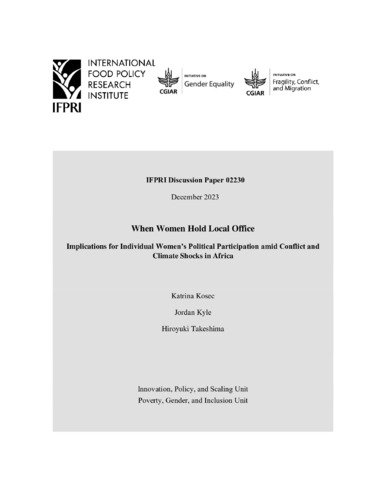When women hold local office: Women’s representation and political engagement amid conflict and climate shocks across Africa
Abstract
One argument in favor of quotas for women’s representation in political office is that female politicians can break down gender barriers more broadly, inspiring individual women to participate politically. In many African countries, where gender gaps in political participation are large, identifying effective strategies to reduce gender imbalances is critical. Recurring climate and conflict shocks are making this task more urgent, to ensure that women’s voices are included when designing responses to those shocks and as it is possible that climate and conflict shocks could widen participation gaps. Using data from 13 African countries on women’s representation in subnational political offices as well as survey data on individual political participation, we find, first, that women’s representation in local office is associated with higher political participation by individual women (but not by men) in this context. Second, using geo-referenced data on shocks, we show that violent conflict shocks in particular lower political participation for everyone, although the effects are stronger for men compared to women in the 12-month frame that we consider here. Third, we find that, when women leaders hold local political office, the negative effects of conflict shocks on political participation are mitigated for women. These analyses offer important new insights into the relationship between women’s political representation and women’s individual political activity within the context of shocks.

